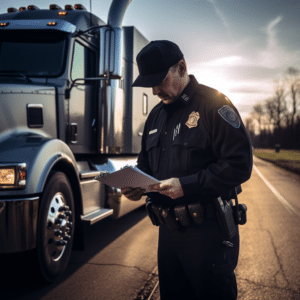Understanding Commercial Truck Accident Cases
Commercial trucking accidents create catastrophic results. The size and weight disparity between passenger vehicles and semi trucks means injuries are often severe or fatal. These cases involve multiple parties, including the truck driver, trucking company, cargo loaders, maintenance providers, and several insurance companies.
Federal and state regulations govern the trucking industry, creating additional layers of complexity. The Federal Motor Carrier Safety Administration (FMCSA) sets strict rules about driver hours, vehicle maintenance, cargo securement, and company oversight. Violations of these regulations often play a central role in building your claim.
Unlike fender benders, semi truck accident claims typically involve substantial damages. Medical bills can reach hundreds of thousands of dollars, especially when injuries require surgery, rehabilitation, or long-term care. Lost wages, reduced earning capacity, and pain and suffering add to the compensation you may be entitled to receive.
Let's Go Beyond, to Bring You Back
Let's get you the compensation you're entitled to. Get a FREE Consultation today.
Let's Go Beyond, to Bring You Back
You deserve the compensation you’re entitled to, call for your FREE Case Review today.
Who Is Liable for a Semi-Truck Accident?
Liability in semi truck accidents often extends beyond the driver who caused the collision. Determining all responsible parties requires thorough investigation and legal knowledge.
The truck driver bears responsibility when their negligence causes an accident. Common driver errors include speeding, distracted driving, driving under the influence, or violating hours of service regulations. Driver fatigue remains one of the leading causes of commercial truck accidents.
Trucking companies face liability through several legal theories. Under respondeat superior, employers are responsible for their employees’ actions during work hours. Companies can also be held directly liable for negligent hiring, inadequate training, or pressuring drivers to violate safety regulations.
Maintenance providers may share responsibility when poor repairs or inspections contribute to mechanical failures. Brake malfunctions, tire blowouts, and steering problems often trace back to inadequate maintenance.
Cargo loading companies can be liable when improperly secured or overweight loads cause accidents. Shifted cargo affects vehicle stability and can lead to rollovers or jackknife situations.
Vehicle and parts manufacturers face claims when defective components cause accidents. Design flaws or manufacturing defects in braking systems, tires, or other critical parts can be the root cause of a collision.
Multiple parties often share fault in commercial truck accidents. Your attorney will investigate all potential sources of liability to ensure you receive full compensation.
How Do Insurers Determine Who Was at Fault?
Insurance companies conduct investigations to assign fault after a semi truck accident. Understanding their process helps you protect your interests during the claims process.
Adjusters review the police report as their starting point. Law enforcement documentation includes officer observations, witness statements, and citations issued at the scene. However, police reports aren’t always accurate or complete.
Physical evidence from the accident scene plays a significant role. Skid marks, vehicle damage, debris patterns, and road conditions all provide clues about what happened. Insurance companies may send their own investigators to document the scene, though evidence often disappears quickly.
Electronic logging devices (ELDs) and black box data from commercial trucks provide objective information about speed, braking, and driver actions before the collision. This data can prove violations of hours of service rules or unsafe driving behaviors.
Witness statements help reconstruct the accident sequence. Insurance adjusters interview people who saw the collision, though witness reliability varies. Some witnesses have clearer views or better memories than others.
Trucking company records reveal patterns of negligence. Driver qualification files, maintenance logs, and company policies often expose systemic safety failures that contributed to your accident.
Insurance companies don’t always conduct fair investigations. Adjusters work for the insurance company, not for you. They may overlook evidence that supports your claim or emphasize facts that reduce their company’s liability. Having your own attorney investigate the accident protects your rights.
Texas follows a modified comparative negligence rule. You can recover damages as long as you’re less than 51% at fault, but your compensation is reduced by your percentage of responsibility. Insurance companies often try to shift more blame onto accident victims to reduce payouts.
Injured in a Truck Accident?
Get Compensated For Your Injuries & Damages! Call Us For A FREE Case Review And Know What Your Case Is Worth.
What Not to Say to an Insurance Claim Adjuster

Never admit fault or apologize. Statements like “I’m sorry” or “I didn’t see the truck” can be twisted to suggest you caused the accident. Even if you think you might have made a mistake, let the investigation determine fault.
Don’t give recorded statements without legal representation. Adjusters often request recorded statements early in the process, claiming it’s routine. These recordings become evidence used against you. Adjusters ask leading questions designed to get you to minimize your injuries or accept partial blame.
Avoid discussing your injuries in detail. Saying you “feel fine” or that injuries are “not that bad” gives insurance companies ammunition to argue your injuries aren’t serious. Pain and injuries often worsen in the days and weeks following an accident. What seems minor initially may require extensive treatment.
Don’t accept the first settlement offer. Initial offers are almost always lower than what your claim is worth. Insurance companies hope you’ll accept quick money before understanding the full extent of your injuries and damages.
Refuse to provide broad authorizations. Adjusters may ask you to sign medical records releases or other authorizations. These forms often grant access to your entire medical history, allowing adjusters to search for pre-existing conditions to blame for your injuries.
Keep conversations brief and factual. If you must speak with an adjuster, limit responses to basic information: your name, contact information, and that you were involved in an accident. Direct all other questions to your attorney.
What Insurance Adjusters Won’t Tell You
Insurance adjusters operate with one primary goal: minimizing their company’s payout. Several tactics and truths remain hidden during the claims process.
Your claim is worth more than they offer. Adjusters start with lowball offers, hoping you don’t know your claim’s true value. They count on accident victims being desperate for quick money or unaware of their full damages.
They have more money available than they admit. Insurance companies maintain large reserve funds for claims. When adjusters say “that’s all we can offer,” they’re usually lying. A higher authority exists to approve larger settlements.
Time limits work in your favor, too. While insurance companies emphasize deadlines to pressure you, they also face time constraints. As trial dates approach, insurance companies become more willing to negotiate reasonable settlements rather than risk jury verdicts.
Your pre-existing conditions don’t automatically reduce your claim. Texas law recognizes the “eggshell plaintiff” rule, which means defendants take victims as they find them. If a pre-existing condition was worsened by the accident, you can recover for that aggravation.
They’re evaluating you personally. Adjusters assess whether you’ll be a good witness if your case goes to trial. They note inconsistencies, hostility, and other factors that might affect your credibility. This evaluation influences their settlement offers.
Social media posts affect your claim. Adjusters search your online profiles for evidence contradicting your injury claims. Photos of you engaging in physical activities or appearing happy can be misrepresented as proof you’re not injured.
Attorney representation increases settlements. Studies show that represented claimants receive higher settlements than those negotiating alone, even after attorney fees. Insurance companies take claims seriously when attorneys are involved.
Building a Strong Semi Truck Accident Claim

Seek immediate medical attention. Your health comes first, and prompt medical care creates documentation linking your injuries to the accident. Gaps in treatment give insurance companies opportunities to argue your injuries weren’t serious or weren’t caused by the collision.
Document everything related to the accident. Save medical records, bills, pay stubs showing lost wages, and receipts for accident-related expenses. Take photos of your injuries as they heal. Keep a journal describing your pain levels, limitations, and how injuries affect your daily life.
Preserve evidence from the accident scene.
If possible, take photos of vehicle damage, skid marks, traffic signals, and road conditions. Get contact information from witnesses. This evidence may disappear quickly, so acting fast matters.
Avoid posting on social media. Insurance companies monitor public profiles looking for ammunition against your claim. Even innocent posts can be taken out of context. The safest approach is staying off social media until your case resolves.
Follow your doctor’s treatment recommendations. Skipping appointments or ignoring medical advice allows insurance companies to argue you’re not really injured. If you can’t afford treatment, tell your attorney. Options exist for getting care without upfront costs.
Don’t settle before understanding full damages. Some injuries require months or years of treatment. Settling too quickly may leave you responsible for future medical bills. Your attorney can help determine when you’ve reached maximum medical improvement.
Let's Go Beyond, to Bring You Back
Let's get you the compensation you're entitled to. Get a FREE Consultation today.
Let's Go Beyond, to Bring You Back
You deserve the compensation you’re entitled to, call for your FREE Case Review today.
| Topic | Key Takeaways | What to Do |
|---|---|---|
| Why Truck Claims Are Different | • 80,000-lb commercial vehicles cause catastrophic injuries and high damages. • Multiple parties often involved: driver, trucking company, cargo loaders, maintenance providers, parts makers. • FMCSA rules (hours-of-service, maintenance, loading) add legal complexity. |
• Treat these as complex claims, not typical fender-benders. • Document injuries, bills, and all crash details from day one. |
| Liable Parties | • Driver: speeding, distraction, DUI, fatigue/hrs-of-service violations. • Trucking company: vicarious liability; negligent hiring/training/scheduling/safety practices. • Maintenance: poor inspections/repairs leading to brake, tire, and steering failures. • Cargo/loading: overweight or shifting loads causing rollovers/jackknifes. • Manufacturers: defective parts/components. |
• Investigate all potential defendants to avoid leaving money on the table. |
| How Insurers Decide Fault | • Adjusters review police reports, physical evidence, ELD/“black box” data, witness statements, and company records. • Texas uses modified comparative negligence (51% bar): recovery reduced by your fault; barred at ≥51%. |
• Don’t rely on the insurer’s investigation—run an independent one. • Move fast before critical evidence disappears. |
| What Not to Tell Adjusters | • Don’t admit fault or apologize. • Don’t give a recorded statement without counsel. • Don’t minimize injuries (“I’m fine”). • Don’t sign broad medical releases. • Don’t accept the first offer. |
• Keep conversations minimal and factual; route questions through your attorney. |
| What Adjusters Won’t Tell You | • Initial offers are usually low; carriers often have more authority/funds than stated. • As trial nears, settlement leverage increases. • They assess your credibility and scour social media. |
• Avoid social posts; assume you’re being evaluated. • Build leverage with thorough prep and trial readiness. |
| Build a Strong Claim | • Immediate medical care documents causation and seriousness. • Save medical bills/records, wage proof, receipts; photo the scene/vehicles/injuries; gather witnesses. • Follow treatment plans; don’t settle before knowing long-term needs. |
• Keep a recovery journal (pain, limits, missed work). • Tell your attorney if cost blocks care—there may be options. |
| Why Hire a Truck-Accident Lawyer | • Independent investigation (ELDs, logs, inspections, experts). • Accurate valuation of economic & non-economic damages. • Trial-ready posture boosts settlement value. • Contingency fee: no up-front fees; pay only if you recover. |
• Retain counsel early to secure/preserve evidence and manage all insurer contact. |
| Your Next Step | • Wyly & Cook handles complex semi-truck claims, investigates thoroughly, negotiates aggressively, and prepares every case for trial. | • Call 713-236-8330 for a FREE consultation or submit the case review form on the page. |
The Role of Legal Representation in Truck Accident Claims
Semi truck accident claims involve legal complexities that overwhelm most accident victims. Working with an experienced attorney levels the playing field against well-funded insurance companies.
Attorneys investigate thoroughly to identify all liable parties and evidence supporting your claim. This includes obtaining black box data, reviewing driver logs, inspecting vehicles, interviewing witnesses, and consulting with accident reconstruction experts. Insurance companies take cases seriously when they see thorough investigation and preparation.
Your attorney handles all communication with insurance companies, protecting you from tactics designed to devalue your claim—no more pressure to give recorded statements or accept inadequate settlements. Your lawyer becomes your shield against these practices.
Calculating damages accurately requires legal knowledge. Attorneys understand how to value economic damages like medical bills and lost wages, as well as non-economic damages such as pain and suffering. Proper valuation means you don’t leave money on the table.
Trial preparation motivates settlement. Insurance companies know that some attorneys rarely go to court. When your lawyer demonstrates willingness and ability to try your case, settlement offers increase. Most cases settle before trial, but insurance companies only offer fair amounts when they face credible trial threats.
Contingency fee arrangements make legal representation accessible. You pay nothing up front and only pay attorney fees if you recover compensation. This arrangement allows injured victims to afford experienced legal representation regardless of financial circumstances.
Your Path Forward After a Semi Truck Accident
Semi truck accident claims present challenges that seem overwhelming when you’re dealing with serious injuries and financial pressures. Understanding liability, insurance tactics, and the claims process empowers you to protect your rights and pursue fair compensation.
Remember that insurance companies don’t have your best interests at heart. Their adjusters are trained to minimize payouts, not to help accident victims recover fully. You need someone on your side who understands these tactics and knows how to counter them effectively.
The attorneys at Wyly & Cook Law Firm have extensive experience handling complex semi-truck accident claims. We investigate thoroughly, negotiate aggressively, and prepare every case for trial. Our contingency fee structure means you pay nothing unless we win your case.
Don’t let insurance companies take advantage of you during this difficult time. Contact Wyly & Cook Law Firm today for a free consultation about your semi truck accident claim. We’ll review your case, answer your questions, and explain your options for pursuing compensation. Call us now to get started on your path to recovery.


